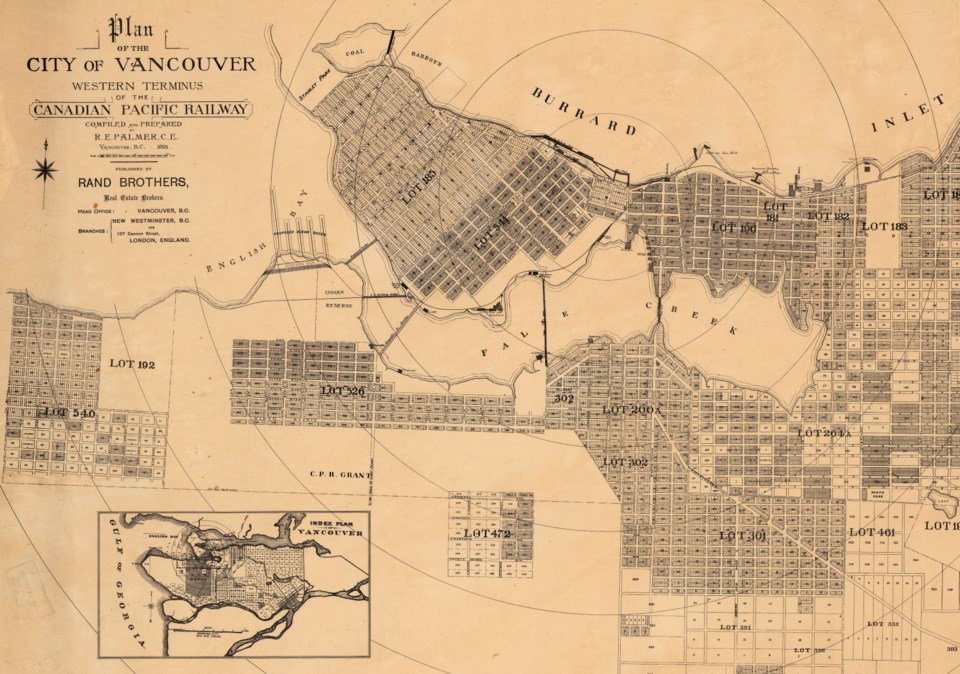In Vancouver, real estate is somewhat of its own saga.
With billions of dollars, massive projects, and plenty of speculation, books have been written about the subject.
There's plenty to focus on, from the fact for the rights to the land, to the (6,000 acres) to make Vancouver the terminus of the essential railway, to the ongoing housing crisis.
That said, there are a few oddities in local real estate that those not fully involved in the world of property development and investment may not recall or be aware of.
Here are five (hopefully) things you may not know about Vancouver's real estate.
The Vancouver School Board focuses on schools, but it's ended up with some land that isn't always needed for facilities.
The mall looks and feels very much like a throwback to the 1970s and 80s; that's because it is. Before that, the site was the home to Mount Pleasant School, which stood for nearly 80 years.
The school board didn't give up the land when the new school was built at a different site, instead they leased it cheap to a company that built the mall.
2. A B.C. premier was brought down by a Metro Vancouver amusement park real estate scandal
A couple of B.C. premiers and politicians have had careers ended by different scandals, but only one (it appears) was due to an amusement park deal.
Bill Vander Zalm was premier more than 30 years ago in the late 80s and early 90s, having become wealthy with a tulip business. After spending a couple of years as the Mayor of Surrey, he rose through the ranks of the now-defunct BC Social Credit Party (aka Socreds).
In 1986, after Premier Bill Bennett announced he was retiring, Vander Zalm won the leadership of the party and therefore the premier's office; later that year there was a provincial election and he won.
While he for his social conservatism, what finally ended his tenure was a real estate deal from his private life. In 1984 he bought Fantasy Garden World in Richmond, a commercial nursery that was turned into an amusement park while he was premier.
Issues around a $20,000 payment and conflicts of interest around the land's development and sale abounded and Vander Zalm stepped down as premier in 1991. The party collapsed in the next election later that year and never recovered.
While it's obvious that an address in a nice neighbourhood means a price will sell for more, a UBC study involving real estate in and around Vancouver found that the actual numbers matter too.
The 2010 study found "houses with addresses ending in the lucky number eight sold at a 2.5 per cent premium, while those ending in the unlucky number four sold at a discount of 2.2 per cent."
This was connected to Chinese number preferences, where numbers like eight are considered lucky. Therefore, a premium would be paid for addresses with lots of eights; one realtor even paid the fee (a couple hundred dollars) to change an address to add value to his house.
While Vancouver's Stanely Park is likely considered priceless by Vancouver's residents, BC Assessment has a job to do.
The provincial agency assesses the value of essentially all the land in the province, including the park. In their most recent assessment, it was valued at $3.578 billion, with $10 million of that for buildings.
Not all parks are assessed, but other things are. BC Children's Hospital is valued at $969 million ($567 million is for the buildings), city hall's property is $143 million ($15.8 million of that is the building) and BC Place is $223 million (with only $55 million of that the land).
5. The West End was sold for $550.75 in 1862
While the West End is worth a couple billion dollars as a whole nowadays (perhaps more), when it was first sold it was a bit more modest.
A trio of men nicknamed the Three Greenhorns bought Lot 185 in 1867, according to .
In the document the land being sold is essentially the area between Stanley Park, Burrard Street and West Georgia down to English Bay; an estimated 550 acres.
The price? In the document it's written as "one hundred and fourteen pounds eleven shillings and eight pence." How that traslates to Canadian dollars now is unclear, but in 2013 the city wrote a history of the West End and estimated it at $550.75.
However, the three men struggled with their massive chunk of land, trying to raise cattle and make bricks (a reminder, Vancouver was a big lumber town at the time). It should also be noted that they were the only settlers on the land, local Indigenous people still lived in and around the area.
It took some time, but the area began to develop in the late 1880s into a wealthy neighbourhood.



